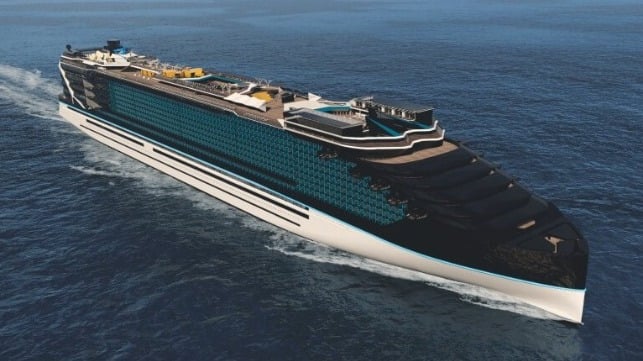First Methanol-Powered Fuel Cell System Approved by RINA

Research is continuing to expand on the potential of fuel cells to meet the power challenges for the next generation of ocean shipping. In the latest development, German battery technology company Freudenberg e-Power Systems received type approval from classification society RINA for the first methanol-powered fuel cell system, an application which the company believes could be the solution for large vessels, such as cruise ships and containerships, that sail long distances. The new fuel cells build on work with hydrogen fuel cells that are currently being applied for limited applications on cruise ships as well as others such as offshore support vessels.
Freudenberg developed an innovative approach to using methanol that combines highly efficient fuel reforming technology with a long-life PEM fuel cell in a modular, scalable system unit. It generates hydrogen via steam reforming, which then reacts with oxygen from the air in the fuel cell to produce the electrical energy needed for both propulsion and the ship’s electrical system. The heat required for the reformer can be obtained directly from the waste heat of the fuel cells. The fuel cell stack, reformer, and control electronics as well as all components for media supply are located in a prefabricated, modular unit.
The company points out that hydrogen is not practical for cruise ships, tankers, or containerships, that require route flexibility and often operate voyages of more than 5,000 nautical miles. While fuel cells have advantages due to their high efficiency and low maintenance requirements, Freudenberg says that due to its low volumetric energy density hydrogen as a direct energy storage medium is not practical because of the volume and the huge hydrogen tanks in a cryogenic or highly compressed state that would be required. Additionally, purely battery-electric solutions have high weight and space requirements.
Methanol they highlight is a simple alcohol that is liquid under normal ambient conditions and has around three times the volumetric energy density of liquefied hydrogen. The safety of their approach Freudenberg says is demonstrated in RINA’s Type Approval while using the chemical process they believe creates an economic alternative for ocean shipping.
“Achieving Type Approval represents an important milestone for the maritime industry,” said Dr. Manfred Stefener, Managing Director of Freudenberg Fuel Cell e-Power Systems. “This lays the foundations for fuel cell systems to be used on a megawatt-scale on cruise ships and the international ocean fleet. The marine energy systems of the future will be safe and highly efficient thanks to fuel cell technology.”

that matters most
Get the latest maritime news delivered to your inbox daily.
Freudenberg is currently working with a project consortium focusing on passenger shipping that includes Carnival Maritime (AIDA Cruises), Meyer Werft, as well as Lürssen Werft, besecke, DLR, EPEA, and the classification society DNV GL.
Meyer Werft is currently building the Silver Nova, which will be equipped with the world's largest fuel cell system on a cruise ship. The 54,700 gross ton ship is due to enter service in July 2023 and will be able to run its hotel operations on the fuel cell without power from the combustion engines. Meyer Werft and Freudenberg are also working together on the Pa-X-ell2 research project, in which a fuel cell system is being retrofitted on board the Carnival Corporation’s AIDAnova. The companies are also planning further cooperation, not only on newbuildings but also on existing ships. Meyer Neptun Engineering is developing retrofit solutions and will work closely with Freudenberg to advance joint development for future power solutions.
